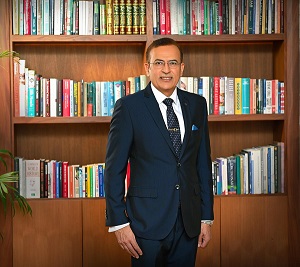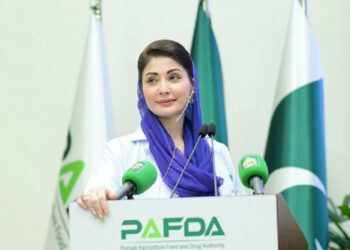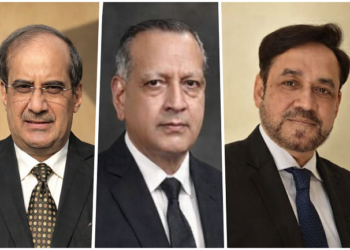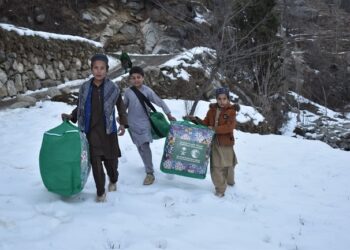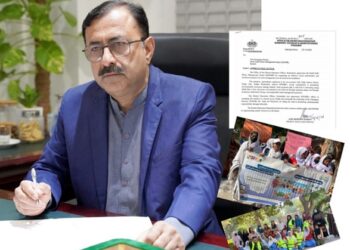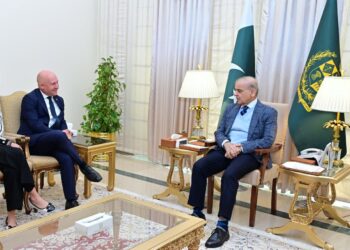Leaders make a clarion call for inclusive multilateral world to bridge Global North-South divide
Islamabad, October 15, 2025 — The NUST Institute of Policy Studies (NIPS) organised the Islamabad Symposium 2025, themed “Balancing Relationship Between Global North and Global South: Challenges and Opportunities” at the NUST main campus on Wednesday. Global leaders, diplomats, practitioners, academics, and members of the civil society attended the insightful session.
Dr Muhammad Zahid Latif, Rector NUST, welcomed the chief guest, Mr Khawaja Muhammad Asif, Federal Minister for Defence, along with members of the diplomatic corps and other participants. The Rector highlighted that the global order post World War II is majorly shaped by the Global North, which is increasingly unresponsive to the issues faced by the Global South that is home to 86 percent of the world’s population. The Rector emphasised that against this backdrop, the Global South has opted for inclusive multilateralism and collective development and cooperation as a response to weaponised interdependence. Dr Zahid also underlined NUST’s efforts and commitment to promoting actionable policy dialogue and contributing to local and global development via comprehensive research across multiple realms.
The opening session included a special video message by the Secretary-General of ASEAN, H.E. Dr Kao Kim Hourn. He appreciated NUST for organising the symposium, highlighting ASEAN’s commitment to the promotion of diplomacy grounded in multilateral consensus, cooperation, and consultation. Dr Hourn reiterated the Vision-2045 by ASEAN, which is pivoted on the principles of inclusivity, peace, shared prosperity, and regional cooperation.
In his remarks, the chief guest commended NIPS for convening this timely discussion on these crucial contemporary challenges. He observed that from climate change to geopolitical tensions, the world is undergoing a massive flux of issues, and the burden of these overlapping crises is falling disproportionately on the developing nations. While highlighting the resolve and preparedness of the nation to thwart any external threat, the Minister reaffirmed the commitment of Pakistan in promoting global and regional peace, particularly with its neighbours. He also touched upon the current evolving environment at Pakistan’s western border and expressed his resolve to defeat any aggressive designs by inimical forces. He urged the Pakistani youth to pursue excellence in innovation, discipline, and integrity in nation-building, and highlighted their role in the progress of Pakistan.
The symposium also featured two plenary sessions: one on “Evolving Geopolitics and Its Implications on the Changing Global Order,” moderated by Ambassador Masood Khalid, and the second on “The New Geoeconomics: Rebalancing North-South Economic and Trade Relations,” moderated by Mr Hamid Sharif, former Managing Director of the Asian Infrastructure Investment Bank (AIIB).
Prominent amongst the speakers were Mr Mushahid Hussain Sayed, who noted that the changing regional and global (geopolitical) landscape offers a strategic space for Pakistan to leverage its potential; Professor Zhang Jiadong, Director of the Center for South Asian Studies, Fudan University who emphasised that evolving geopolitics presents both challenges and opportunities, and it is through inclusivity and equitable representation that the pressures of geopolitical considerations could be effectively alleviated; Ambassador Zamir Akram, Former Permanent Representative of Pakistan to the UN, remarked that restructuring of present multilateral structures, one that offers equitable representation to people of all communities, cultures, and countries, is necessary.
Other speakers at the symposium included Russian Ambassador H.E Albert P Khorev, and Dr Bruno de Oliveira Cruz from Brazil’s Institute for Applied Economic Research (IPEA)
In his remarks, Dr Ashfaque Hasan Khan, DG NIPS, traced the journey of unilateralism from the post-World War II era to early 2025, elucidating the shift from inclusion to contemporary fragmentation and chaos. He noted that the current wave of unilateralism is unique due to the rise of China, and the emergence of the BRICS and SCO.
The keynotes were followed by a comprehensive discussion covering matters, including Pakistan’s role, shifting alliance patterns, and the inadequacy of current multilateral structures. The discussions also explored policy options for rebalancing global economic relations through structural reforms, equitable governance, and renewed North-South cooperation.
Book Launch: Pakistan’s Search for Peace with Afghanistan: Statecraft, Policy and Strategy
Meanwhile, the symposium witnessed the launch of the book titled “Pakistan’s Search for Peace with Afghanistan: Statecraft, Policy, and Strategy,” by Dr Muhammad Zahid Latif, Rector NUST. The Defence Minister, Khawaja Muhammad Asif (NI), appreciated the author and congratulated him on his impeccable work and expertise on the subject.
The Defence Minister noted that the book offers an original take on the current and future trajectory of Pakistan-Afghanistan relations, providing insightful pointers for peaceful coexistence of the two neighbours.
















